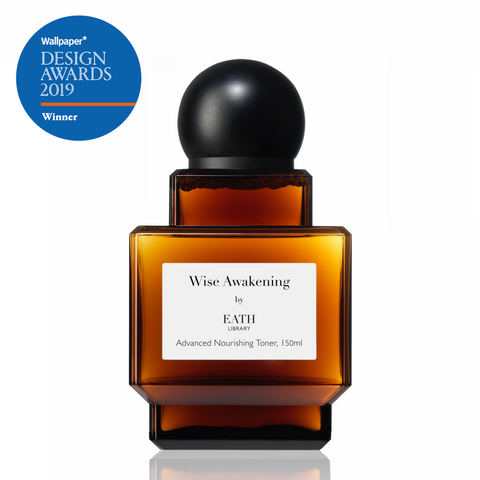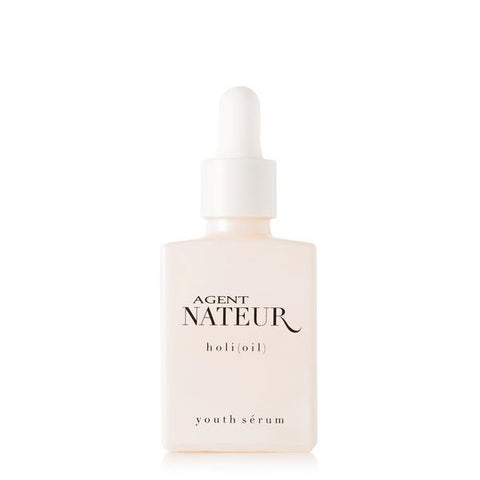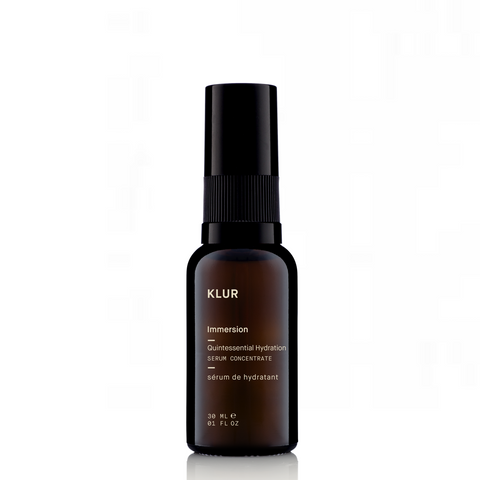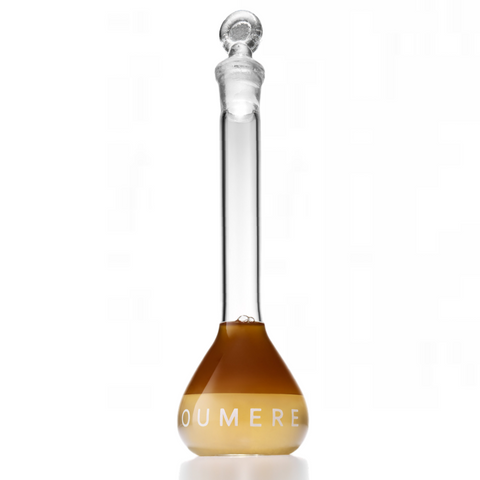Free shipping for HK orders HK$600+
The Difference Between Hydration and Moisture in Skincare
August 15, 2023
Did you know that while hydrating and moisturising the skin sound similar, they are actually two entirely different concepts?
The truth is, a lot of copywriters and editors do not understand the difference, so the two words are often used interchangeably. However, this may also mean you may have been taking care of the skin the wrong way all these years, leading to perpetual dehydrated and dry skin.
Read on to understand the difference between hydration and moisture now, so you won't mix it up in the future!
In the simplest term, hydration refers to water.
When the skin is hydrated, it will look plump, feel soft, and have a lot of elasticity. It can also deliver nutrients from skincare products to the cells and fight irritants and inflammations much better, as the cells need hydration to function at their best.
On the other hand, when the skin is dehydrated, it can appear dry, tight, and dull with more prominent fine lines, wrinkles and pores, while skincare ingredients cannot penetrate. Dehydrated skin is also more susceptible to acne, inflammation, sunburn, UV damage, and even infection.
In fact, when the skin is dehydrated, the skin will fight this by producing more and thicker sebum in an attempt to compensate. As a result, the skin becomes oily on the surface, even though deep down it is dehydrated. Now, many people believe that the best course of action is to try to dry out the skin by using harsh, foaming cleansers, but this would also result in a long term problematic cycle of acne and inflammations due to a damaged skin barrier.

Product Recommendation
EATH LIBRARY
Wise Awakening Advanced Nourishing Toner <- Click to shop
| Why Do You Need to Hydrate the Skin?
Water naturally evaporates from the skin trans-epidermally throughout the entire day, and it accelerates dramatically at night. This process is called trans-epidermal water loss (TEWL).
Due to how the skin works, some TEWL is inevitable. However, there are several factors that can exacerbate the process, such as being in low-humidity environments (including air-conditioned and heated rooms), UV rays, heat, sweating, hot water, aging, and employing aggressive skincare practices that can damage the skin barrier, such as over-cleansing, using foaming cleansers, friction, and scrubbing.
When this process is accelerated, the skin loses more water than usual and at a faster pace, which is why we need to use skincare products to help hydrate the skin.
Product Recommendation
AGENT NATEUR
holi(water) Hyaluronic Pearl & Rose Essence <- Click to shop
| What Hydrates the Skin?
Besides water, different forms of humectants are used in skincare products to hydrate the skin.
Humectants are ingredients that attract and bind water. In skin care products, they draw water from the deeper layers of the skin to the outermost layer, and when the air humidity is higher than 70%, they also draw water from the surrounding environment to the skin. These humectants include, but not limited to:
- Aloe vera leaf juice
- Glycerin
- Bamboo sap
- Lactic acid
- Mandelic acid
- Flower Hydrosols
- Cucumber
- Hyaluronic acid
- Sodium hyaluronate
- Sodium PCA
- Panthenol
- Glycogen
- Hydrolyzed collagen
- Silk peptides
- Amino acids
- Gluconolactone
- Lactobionic acid
- Beta-Glucan
- Polysaccharides
- Allantoin
- Saccharide isomerate
- Sea kelp
- Algae
- Seaweed
- Sorbitol
- Sodium lactate
- Butylene glycol
- Betaine
Product Recommendation
EATH LIBRARY
The Pure Wonder Active Serum <- Click to shop
| What is the Best Form of Products to Deliver Hydration?
Toners (or sometimes used interchangeably with essences), and serums are daily skincare products that are best at delivering actual hydration to the skin.
In fact, it is best to use a hydrating toner within 60 seconds of cleansing. Think about how you wash the dishes. When you squeeze dish-washing liquid to a dry sponge, it won’t get distributed evenly on the sponge, and you won’t be able to clean the dishes effectively. The skin after cleansing is like that dry sponge. Without that extra water in the skin, all the skincare products you put on the skin afterwards won’t get absorbed and distributed in the skin; whereas if you put serums, oils or moisturizer on damp skin, they will be able to penetrate much better.

Product Recommendation
TWELVE BEAUTY
Ultra Revitalising Elixir <- Click to shop
As for hydrating serums, it is best used after other serums and before any oils or moisturizers. This is because most hydrating serums are designed to contain certain ingredients that are larger in molecule size to partly sit on top of the skin and pull water to the skin surface, so that the skin won't feel tight. This essentially means, other anti-aging or brightening serums would penetrate better if they were used before hydrating serums.
Product Recommendation
KLUR
Immersion Serum Concentrate <- Click to shop
As mentioned above, water naturally evaporates from the skin, and this process can accelerate when the skin barrier is damaged, as this barrier is what helps the skin maintain water and prevent excessive water TEWL.
In the simplest term, moisturizing the skin means helping the skin retain water.
Product Recommendation
AGENT NATEUR
holi(crème) Filter Face Cream <- Click to shop
| Why Do You Need to Moisturize the Skin?
Imagine how a broken dam can't hold in water. If you do not repair the broken dam, no matter how much water is poured into the dam, water will keep on escaping and the dam will crack even more down the line, leading to even more water loss. This is the same with your skin barrier.
In addition, when your skin barrier is damaged, i.e. there are cracks on the skin even if they are invisible to the naked eye, it can no longer block out irritants, bacteria and pollutants. This would lead to acne, sensitivity, and inflammations.
Now, when you moisturize the skin, you are essentially preventing excessive TEWL, and with certain ingredients, you can also repair and strengthen the skin barrier at the same time.
Product Recommendation
MARIE REYNOLDS LONDON
Elixir™ <- Click to shop
| What Moisturizes the Skin?
There are two main categories of ingredients that are used to moisturize the skin——emollients and occlusives.
Emollients are ingredients that can influence how the skin cells function, and thus can repair and strengthen the skin barrier, thereby limiting and preventing water loss. Using the above broken dam metaphor, emollients are like cement used to rebuild the broken dam.
Some emollients often used in skincare products include, but not limited to:
- Squalane
- Plant oils such as rosehip oil, jojoba oil, rice bran oil etc.
- Ceramides
- Oat
- Olus oil
- Cetearyl glucoside
- Cetearyl Olivate
- Lecithin
- Cetyl alcohol (a fatty alcohol, different from a drying alcohol)
- Cetearyl alcohol (a fatty alcohol, different from a drying alcohol)
Product Recommendation
KLUR
Unseasonal Kind Lipid Replenishment Oil <- Click to shop
Product Recommendation
OUMERE
Serum Bioluminelle™ <- Click to shop
Occlusives, on the other hand, sit on the skin as an external barrier. Again using the above broken dam metaphor, occlusives are like giant plastic wrap that stop water from flowing out, but what they don't do, is repair the actual dam. Other major issues with occlusives used on the skin is that they can clog pores, trap bacteria, irritants and inflammations within the skin, influence the skin's natural renewal process, and may even affect the skin's natural ability in moisturizing itself.
Some of these occlusive ingredients include, but not limited to:
- Vaseline
- Petrolatum
- Mineral oil
- Lanolin
- Beeswax
- Candelilla wax
- Carnauba wax
- Shea butter
- Paraffin
| What is the Best Form of Products to Moisturize Skin?
Face oils are arguably the best form of products for moisturizing the skin.
The levels of lipids that make up the outermost layer of the skin decline with age. As a result, the skin become thinner, and is more prone to dryness, dullness and conditions such as eczema and psoriasis, whilst fine lines and wrinkles become more prominent.
By replenishing the skin with lipids, antioxidants, vitamins, minerals and polyphenols that are abundant in oils, not only will the skin feel moisturized, the skin will also be able to fortify itself, retain optimal moisture, fight free radicals, stimulate collagen production, and maintain a healthier, stronger barrier to effectively improve skin issues such as dryness, eczema, irritations, oiliness and wrinkles, thereby slowing the aging process.

Product Recommendation
AGENT NATEUR
holi(oil) Ageless Face Serum <- Click to shop
In addition, face oils, which have a small molecular size, can go through the intercellular matrix or through the follicular route in the skin. This means they can actually penetrate and deliver a wide array of nutrients deep into the skin.
Moisturizers that are made up of mainly emollients like those mentioned above, are also a good choice to be used alone, or on top of face oils. They are usually lighter in texture, compared to those that contain mostly occlusive ingredients.
Product Recommendation
EATH Library
All Day Radiance Light Concentration Cream <- Click to shop
Product Recommendation
MARIE REYNOLDS LONDON
Reson8™ <- Click to shop
Product Recommendation
KLUR
Sculpture + A Overnight Enrichment Cream <- Click to shop
Now, moisturizers that contain mainly occlusive ingredients although do prevent water loss, can also pose many aforementioned unwanted issues, as they sit on top of the skin acting as a physical barrier but also as a trap——they stop water from evaporating, but also stop old dead cells, bacteria and inflammation from leaving the skin. Thus while they are useful in the short-term when say you're going on a ski trip or extremely cold places, long-term use is not recommended.
Absolutely! While under-hydrating and under-moisturizing the skin can cause many issues, over-hydrating and over-moisturizing the skin can be, in fact, detrimental to skin health.
We will go through this in our next article, so stay tuned!
Also in The Journal

The Hidden Culprits of Skin Aging: Autophagy Decline and Zombie Cells
January 07, 2026
Don't just mask aging—reverse it. Learn how clearing Senescent Cells and restarting Autophagy creates lasting youthful skin.

The Anti-Aging Gold Standard: How Retinol Reshapes The Skin
November 12, 2025
Learn why retinol is the gold standard for anti-aging, how it works, what similar ingredients exist, and some common myths and misconceptions.

The Gut-Skin Connection: The Path to Healthy Skin
October 26, 2025
Acne, eczema, rosacea, and sensitivity can all be linked to the gut health, and even gluten? Learn all about the connection between the gut and the skin.
+Recent Articles
-
The Hidden Culprits of Skin Aging: Autophagy Decline and Zombie Cells
January 07, 2026
-
The Anti-Aging Gold Standard: How Retinol Reshapes The Skin
November 12, 2025
-
The Gut-Skin Connection: The Path to Healthy Skin
October 26, 2025
-
The Secret to Reversing Skin Aging! How Growth Factors & Peptides Help Turn Back the Clock
October 13, 2025
-
The Best Ways and Times to Take Different Supplements
August 19, 2025
-
Luxury vs. Budget-Friendly Skincare Products——What Are Their Differences?
August 06, 2025
-
How to Prevent and Improve Post-Inflammatory Hyperpigmentation (PIH)
July 10, 2025
-
How to Prevent and Improve Post-Inflammatory Erythema (PIE)
July 08, 2025
-
The Ultimate Cleansing Guide to Improve Skin Conditions
June 03, 2025
-
Do You Have Sugar Face? How Does Sugar Affect Our Skin and Appearance?
May 20, 2025
Subscribe to get skincare knowledge delivered to your inbox!












